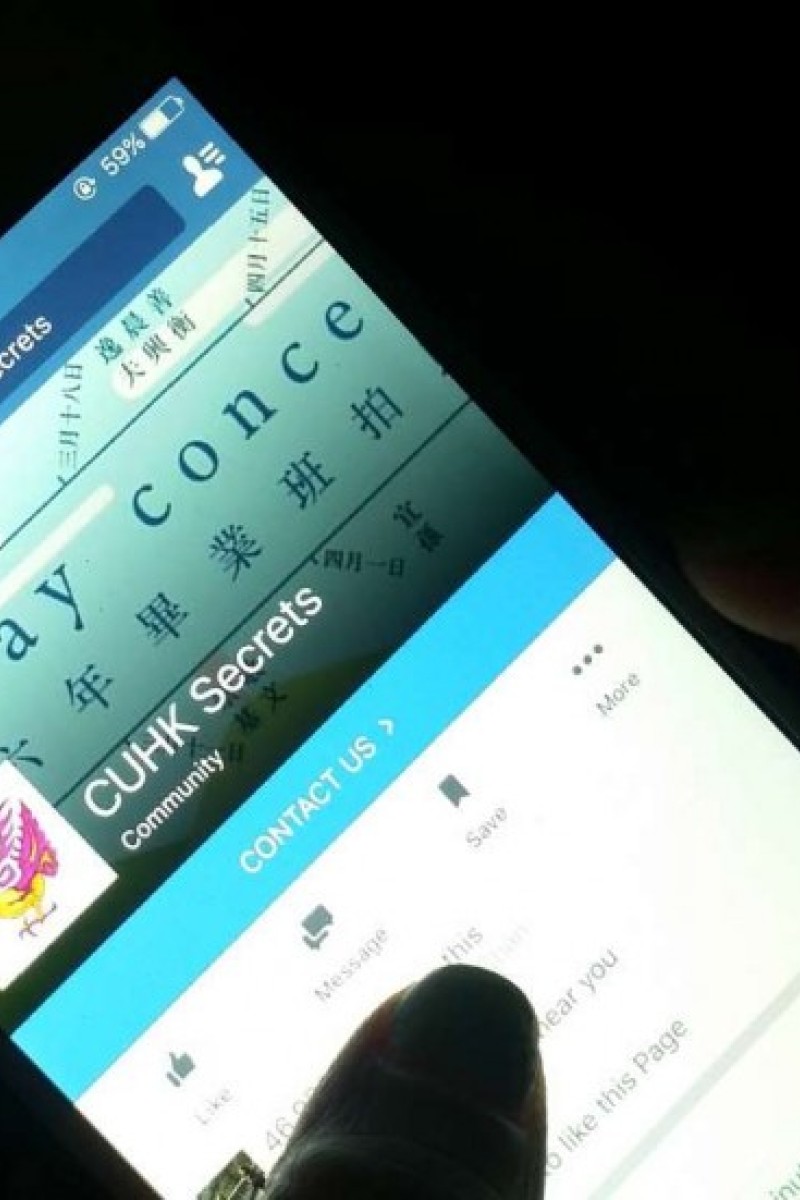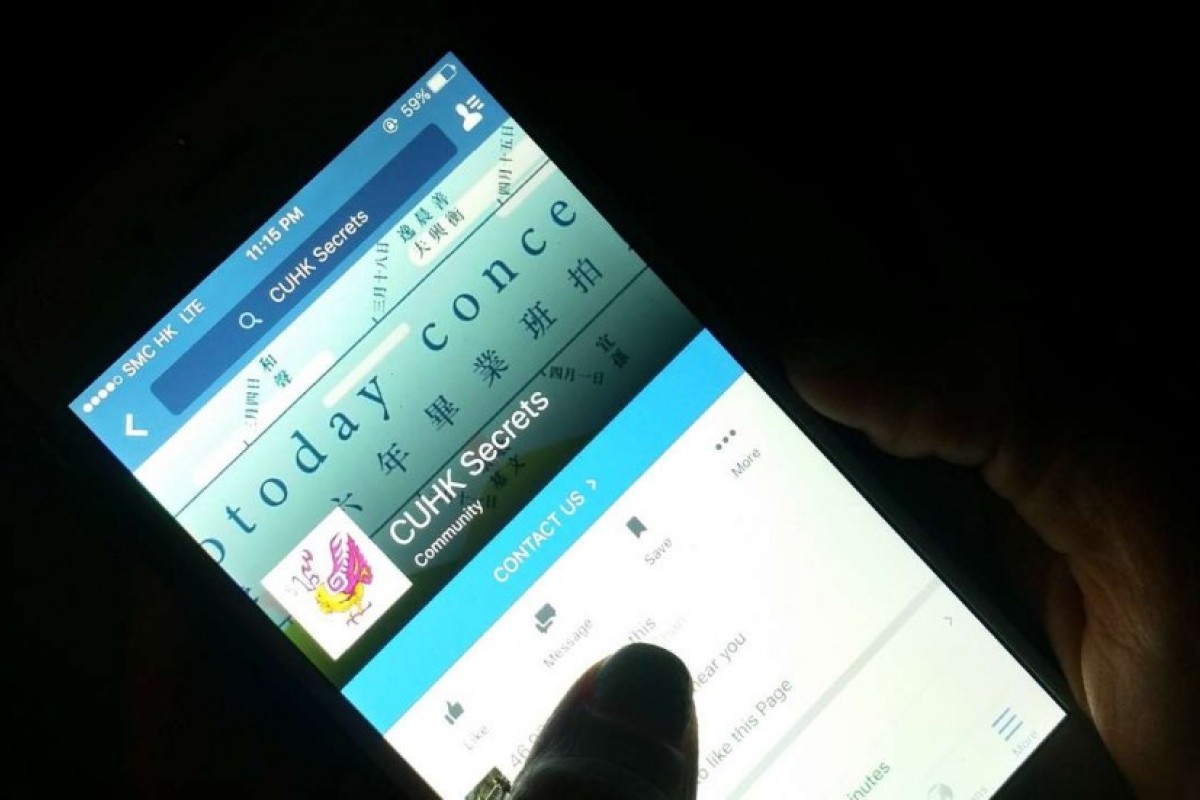
Health talks and leaflets are too passive, mental health promotion should be included in a mobile app says Chinese University professor
 The Post found more messages related to emotional distress and suicide in the Chinese University Facebook group, “CUHK Secrets”, than on other universities’ pages.
The Post found more messages related to emotional distress and suicide in the Chinese University Facebook group, “CUHK Secrets”, than on other universities’ pages.There is help out there. These are 24-hour hotline if you need to talk:
Suicide Prevention Service: 2382 0000
The Samaritans: 2896 0000
The Samaritan Befrienders has extended its online chat forum from 8pm to 2am at help4suicide.com.hk
Society for the Promotion of Hospice Care: 2868 1211
HKFYG Counselling Service: 2777 8899
HKFYG uTouch Portal has an online chat forum from 2pm to midnight (Monday to Saturday) at utouch.hk
An alarming trend of university students leaving suicide-related messages on Facebook groups has prompted calls for the government to change its counselling strategies.
While the trend was observed by the Federation of Youth Groups, the Postfound more messages related to emotional distress and suicide on the Chinese University Facebook group, “CUHK Secrets”, than on other universities’ pages.
This came as the Education Bureau announced measures last Thursday to cope with the recent spate of student suicide cases, including organising seminars for teachers and parents, enhancing in-school counselling services and distributing information packs.
Critics said such measures were “traditional” and not effective in reaching those who needed help.
“The mobile device is the language of the young generation... mental health promotion can be included in a mobile app which contains a screening component,” said Dr Lee Sing, a psychiatric professor at Chinese University.
On the CUHK Secrets page, some users indicated suicidal thoughts, lamenting they had no one to share their sadness with, or were influenced by people who kept on sharing negative messages. One even put together a list of books related to suicide.
Another user invited people to contact him or her to share their feelings, but it was not clear whether the user had received any professional counselling training.
That contrasted with gossip pages for other universities, which had more posts related to studies, relationships and activities on campus.
While traditional media professionals are advised to follow suicide reporting guidelines such as those issued by the World Health Organisation, social media platforms allow an open approach when discussing suicide.
Federation of Youth Groups supervisor Hsu Siu-man said administrators of such platforms should be on the alert for messages that suggest genuine suicidal tendencies. She said the federation had observed an increase in such messages on the university’s Facebook pages.
She said the right thing to do would be to simply advise them to seek help and refer them to professional counsellors or social workers. Others should not attempt to provide them with their own advice or opinions, she stressed.
“Those who do not have professional training could sometimes give advice or express opinions that could actually make things worse,” she said. “It could lead to more negativity or a feeling that everything is depressing.”
Mental health experts said the latest measures announced by the bureau were not strong enough to tackle the problem.
“Health talks and leaflets are passive ways... they can’t reach the most high-risk people, as they are either not turning up or reading the materials,” Lee said.
He suggested educational psychologists could design simple apps to screen out high-risk groups in a 10-question format.
Joyce Chow Yuen-fun, chairwoman of the Samaritan Befrienders, also found the bureau’s measures “conservative and traditional”.
She highlighted social media as a useful tool to identify those with suicidal tendencies.
“We could then contact them and urge them to talk to someone,” Chow said.